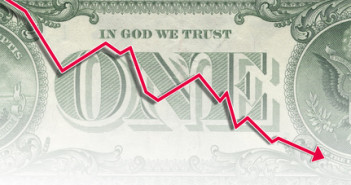· Japanese Yen softer on corporate tax reform speculation
· UK Q2 GDP & Trade Balance numbers take bite out of the Sterling
· Claims & GDP data support the USD, but Debt Ceiling worries limits gains
The Japanese Yen was broadly softer in the overnight session following a report in a Japanese newspaper that the local government is “urgently considering†cutting corporate tax rates as part of a more comprehensive stimulus package. This mirrors an article published by Reuters last week, and is another reason to sell Yen on the grounds that additional stimulus will lead to more JPY in circulation, and thus decrease its relative value. The news helped guild the Yen lower against many of its peers, notably the USD, ending a 4-session rally. The Japanese unit also gave up ground to the Euro, the Kiwi, the Aussie, and the Swissy.
The chatter about corporate tax cuts may have hurt the Yen, but it was a boon to Japanese stocks as it means potentially more revenues will be returned to shareholders instead of paid to the government. By the end of the session the Nikkei had expanded 1.22% and the Topix had put on 0.77%.
Elsewhere in the Asian session the Chinese Yuan fixed close to record highs on talk that the Chinese government is thinking about widening the trading band. In April the band was increased to 1% on either side of the previous daily fixing. Any widening of the trading band would be in line with the government’s promises to loosen its grip the Yuan in the face of pressure from foreign governments. Lawmakers from economies like the USA and the EU, among others, have long insisted that the Chinese government’s currency regulations have artificially depressed the value of the Yuan, making Chinese goods cheaper for offshore buyers.
The European session saw Britain release its Q2 Current Account statistics as well as the final Q2 GDP update; both numbers came in slightly below forecast. According to the Reuters consensus, GDP in the UK was expected to grow 1.50%, but the actual print was 1.30%. The Current Account was expected to post a deficit of GBP 12.0B for the quarter, but the number came in at GBP 13.0B. The Sterling didn’t take the news well and it retreated broadly against other currencies, giving up ground to the Dollar Bloc, the Scandies, and its mainland neighbours (the EUR & CHF). One of the only currencies the GBP outperformed overnight is the JPY, and only slightly.
The UK data also caused GILT yields to contract. The benchmark 10-year product declining to 2.72%, its lowest return in almost a month.
Further reading:Â Debt ceiling clash positive for USD
The Final Q2 GDP reading for the USA as well as the weekly Thursday Unemployment Special have kicked off the American session for the day, and the data was mixed. The Final GDP reading missed expectations, printing 2.50% versus the Reuters consensus of 2.60%. Though below expectations, 2.50% marks the 3 consecutive quarter of growth in American GDP. Meanwhile, the employment statistics handedly bested expectations at 305k versus forecasts of 325k. The decreasing trend in unemployment claims is encouraging, companies tend not to hire if they have negative outlooks for their own economic prospects. Lower claims implies a degree of increased hiring, which suggests that firms are optimistic.
Following the data, the US Dollar Index has rallied back up to overnight highs, though has been unable to match yesterday’s highs. Concerns about the impending Debt Ceiling and the possibility of a government shutdown have limited the Greenback’s gains. USDCAD has traded sideways again overnight and is little moved in the aftermath of the US data.



